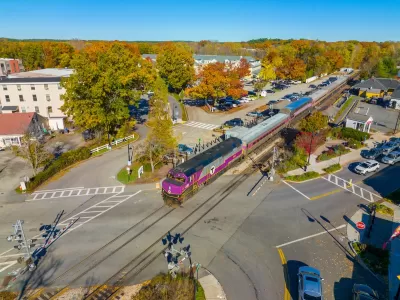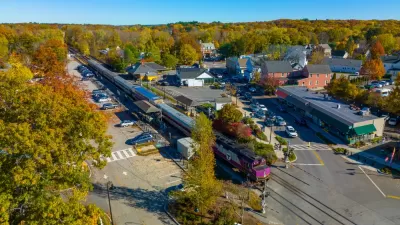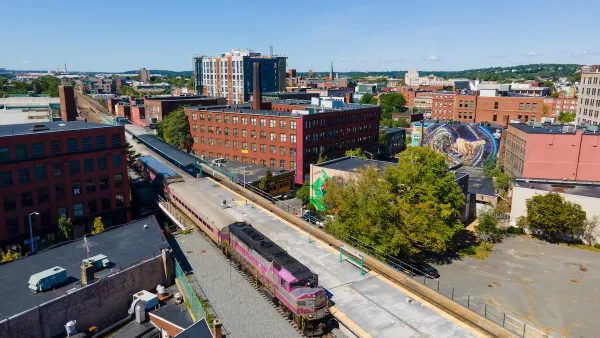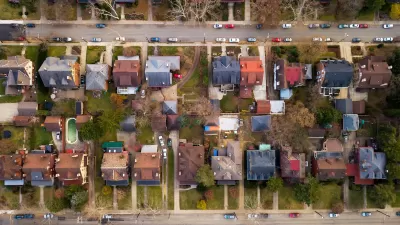While some cities are fighting the state’s push to increase density near transit, others are already breaking ground on multifamily projects that will bring hundreds of new housing units online.

Massachusetts communities are responding in varied ways to the state’s MBTA Communities Act, a zoning reform mandate that calls on cities to streamline permitting for residential developments near transit stations.
As Abby Patkin explains in an article for Boston.com, some cities, like Milton, are fighting the state’s effort to boost the housing supply, while others are embracing the change and making way for higher-density housing. “Take Lexington, where housing proposals have begun pouring in. Or Westwood, which recently saw a 160-unit mixed-use project break ground. Somerville, meanwhile, is in the midst of a triple-decker renaissance.” In Lexington, the seven proposals submitted to the city would create 960 total new housing units. The town is working with developers to conduct water and sewer capacity analyses in advance of construction to ensure local infrastructure can handle the new housing.
The law requires the 177 communities served by MBTA transit lines to adjust zoning around stations to allow for higher-density multifamily housing. “Whether the law will be as transformative as lawmakers hoped remains to be seen, though affordable housing advocates say it’s a step in the right direction,” Patkin adds.
Zoning expert Amy Dain notes that while MBTA Communities could make a major impact on the housing supply, it won’t be enough to end the housing crisis. “[E]ven if MBTA Communities is fully implemented, there’s going to be more work ahead to make sure there’s housing for everybody, and appropriate housing, safe housing, diverse housing, and housing in places where people want to live and have access to jobs and schools and places they want to go to.”
FULL STORY: These towns are seeing results from the MBTA Communities Act

Planetizen Federal Action Tracker
A weekly monitor of how Trump’s orders and actions are impacting planners and planning in America.

Map: Where Senate Republicans Want to Sell Your Public Lands
For public land advocates, the Senate Republicans’ proposal to sell millions of acres of public land in the West is “the biggest fight of their careers.”

Restaurant Patios Were a Pandemic Win — Why Were They so Hard to Keep?
Social distancing requirements and changes in travel patterns prompted cities to pilot new uses for street and sidewalk space. Then it got complicated.

Platform Pilsner: Vancouver Transit Agency Releases... a Beer?
TransLink will receive a portion of every sale of the four-pack.

Toronto Weighs Cheaper Transit, Parking Hikes for Major Events
Special event rates would take effect during large festivals, sports games and concerts to ‘discourage driving, manage congestion and free up space for transit.”

Berlin to Consider Car-Free Zone Larger Than Manhattan
The area bound by the 22-mile Ringbahn would still allow 12 uses of a private automobile per year per person, and several other exemptions.
Urban Design for Planners 1: Software Tools
This six-course series explores essential urban design concepts using open source software and equips planners with the tools they need to participate fully in the urban design process.
Planning for Universal Design
Learn the tools for implementing Universal Design in planning regulations.
Heyer Gruel & Associates PA
JM Goldson LLC
Custer County Colorado
City of Camden Redevelopment Agency
City of Astoria
Transportation Research & Education Center (TREC) at Portland State University
Camden Redevelopment Agency
City of Claremont
Municipality of Princeton (NJ)





























